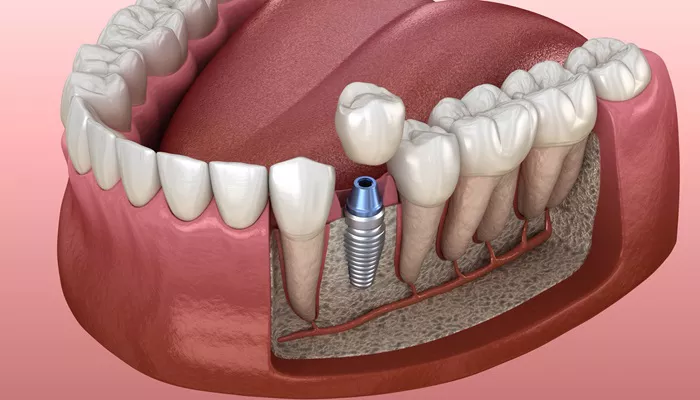Dental implants are a highly effective solution for replacing missing teeth. They provide a stable foundation for artificial teeth, allowing individuals to eat, speak, and smile with confidence. However, after receiving dental implants, patients must adhere to specific post-operative care instructions to ensure successful healing and integration. One common recommendation is to avoid dairy products. This article will explore the reasons why consuming dairy after dental implants is discouraged, the potential risks involved, and what patients can do to promote optimal healing.
Understanding Dental Implants
What Are Dental Implants?
Dental implants are titanium posts surgically placed into the jawbone to serve as artificial tooth roots. They are designed to integrate with the bone through a process called osseointegration. Once the implant has fused with the bone, a crown, bridge, or denture can be attached, providing a natural-looking and functional replacement for missing teeth.
Why Are Dental Implants Needed?
Dental implants are necessary for several reasons:
Replacing Missing Teeth: They restore function and aesthetics, improving the ability to chew and speak.
Preventing Bone Loss: Implants stimulate the jawbone, preventing the bone loss that often occurs after tooth extraction.
Improving Oral Health: Unlike traditional bridges, implants do not require altering adjacent teeth, preserving overall dental health.
The Importance of Post-Operative Care
Healing Process After Implant Surgery
After dental implant surgery, the body requires time to heal. The healing process involves several stages:
Initial Healing: The surgical site begins to heal, and the gum tissue closes over the implant.
Osseointegration: The implant fuses with the jawbone, which can take several months.
Final Restoration: Once healing is complete, the final restoration (crown or bridge) is placed on the implant.
Role of Post-Operative Care
Post-operative care is crucial for the success of dental implants. Patients are typically given specific instructions, including:
Avoiding hard or chewy foods.
Taking prescribed medications as directed.
Maintaining good oral hygiene.
Avoiding certain foods and beverages, including dairy products.
Why Dairy Products Are Discouraged After Dental Implants
1. Increased Risk of Infection
One of the primary concerns after dental implant surgery is the risk of infection. Dairy products can contribute to an increased risk of infection for several reasons:
Bacterial Growth: Dairy products, especially those that are not pasteurized, can harbor bacteria. Consuming these products can introduce harmful bacteria into the mouth, increasing the risk of infection at the surgical site.
Mucus Production: Dairy products can lead to increased mucus production in some individuals. This can create a breeding ground for bacteria, further elevating the risk of infection.
2. Acidic Nature of Some Dairy Products
Certain dairy products, such as yogurt and some cheeses, can be acidic. The acidity can have several negative effects on the healing process:
Gum Irritation: Acidic foods can irritate the gums, slowing down the healing process and increasing discomfort at the surgical site.
Impact on Bone Healing: The acidity can potentially affect the pH balance in the mouth, which is essential for optimal healing. A balanced pH is crucial for the healing of both soft tissue and bone surrounding the implant.
3. Potential for Allergic Reactions
Some individuals may have lactose intolerance or dairy allergies. Consuming dairy products can lead to digestive discomfort, which can complicate the recovery process. Symptoms may include:
Bloating: This can cause discomfort and may lead to stress during the healing period.
Stomach Upset: Digestive issues can divert attention away from recovery and lead to decreased appetite, affecting overall health.
4. Increased Swelling and Discomfort
Dairy products can cause increased swelling and discomfort in some individuals. After dental implant surgery, patients may already experience swelling and sensitivity. Consuming dairy can exacerbate these symptoms, making recovery more uncomfortable.
5. Impact on Blood Sugar Levels
Certain dairy products, particularly flavored yogurts and milkshakes, can contain added sugars. These sugars can lead to spikes in blood sugar levels, which can complicate the healing process. High blood sugar levels can impair the body’s ability to heal, increasing the risk of complications after surgery.
Additional Considerations for Patients
1. Follow Post-Operative Instructions
It is vital for patients to follow all post-operative instructions provided by their dentist or oral surgeon. This includes avoiding dairy products and other potentially harmful substances. Adhering to these guidelines can significantly improve the chances of a successful recovery.
2. Opt for Healthier Alternatives
Instead of dairy products, patients should consider healthier beverage options. Some alternatives include:
Water: Staying hydrated with plain water is the best choice. It helps flush out bacteria and supports the healing process.
Herbal Tea: Non-caffeinated herbal teas can be soothing and hydrating.
Non-Dairy Alternatives: If craving something creamy, consider non-dairy options such as almond milk or coconut yogurt, which may be less irritating to the digestive system.
3. Maintain Good Oral Hygiene
Good oral hygiene is crucial after dental implant surgery. Patients should:
Brush gently around the surgical site.
Floss carefully to avoid disturbing the implant area.
Use an antibacterial mouthwash as recommended by the dentist.
4. Attend Follow-Up Appointments
Regular follow-up appointments with the dentist are essential for monitoring the healing process. These visits allow the dentist to assess the surgical site and ensure that the implant is integrating properly with the bone.
5. Monitor Your Diet
Patients should be mindful of their overall diet during the recovery period. A balanced diet rich in vitamins and minerals can support healing. Foods that are high in protein, vitamins A and C, and calcium can be beneficial for recovery.
Conclusion
Drinking dairy products after dental implant surgery can pose significant risks that may jeopardize the success of the procedure. Increased risk of infection, the acidic nature of some dairy products, potential allergic reactions, and increased swelling and discomfort are all concerns that patients should consider.
To promote optimal healing after dental implant surgery, it is crucial to avoid dairy products and follow all post-operative care instructions. By making healthy dietary choices and maintaining good oral hygiene, patients can enhance their chances of a successful recovery and enjoy the benefits of their dental implants for years to come.
Related topics:

